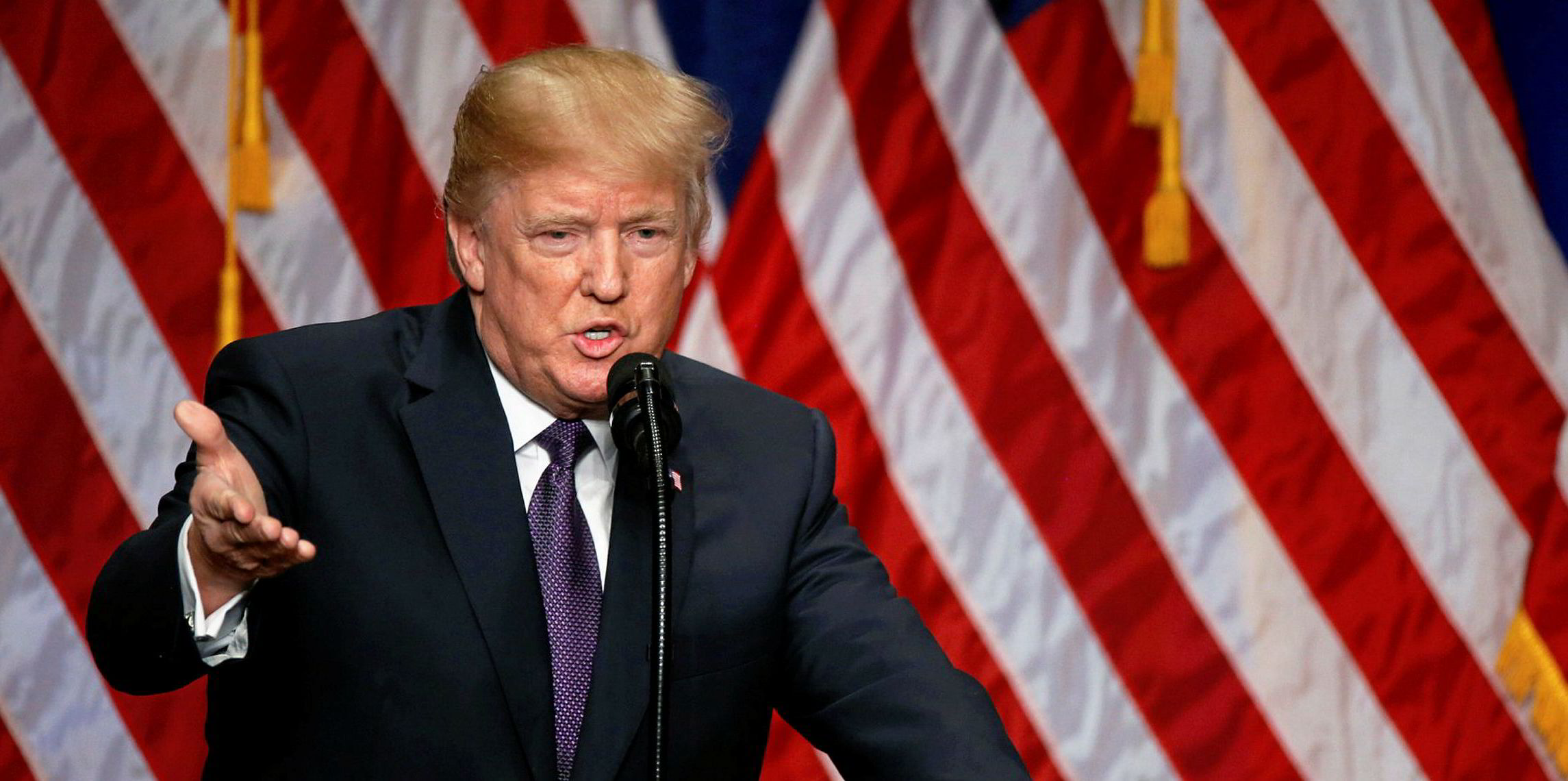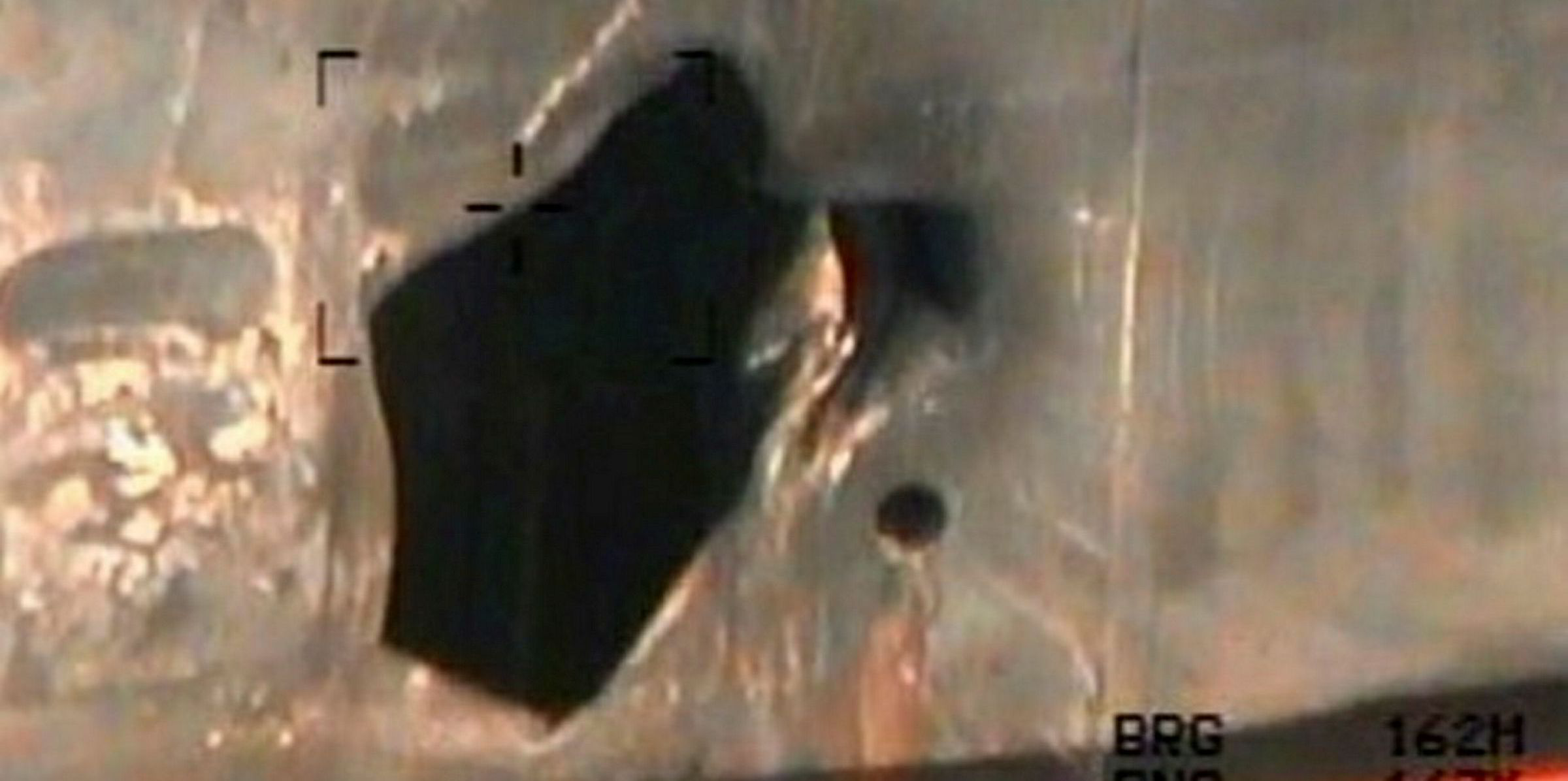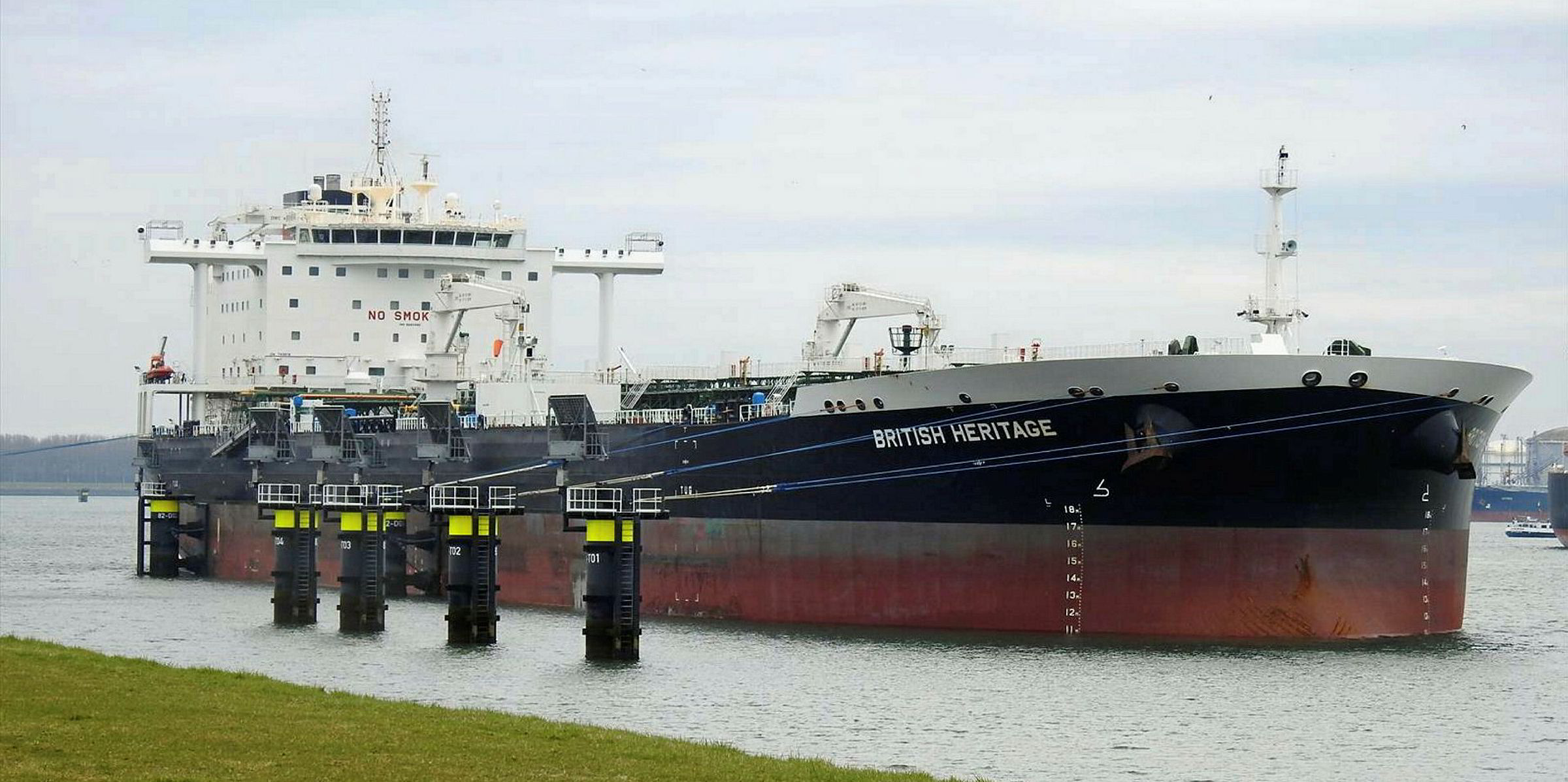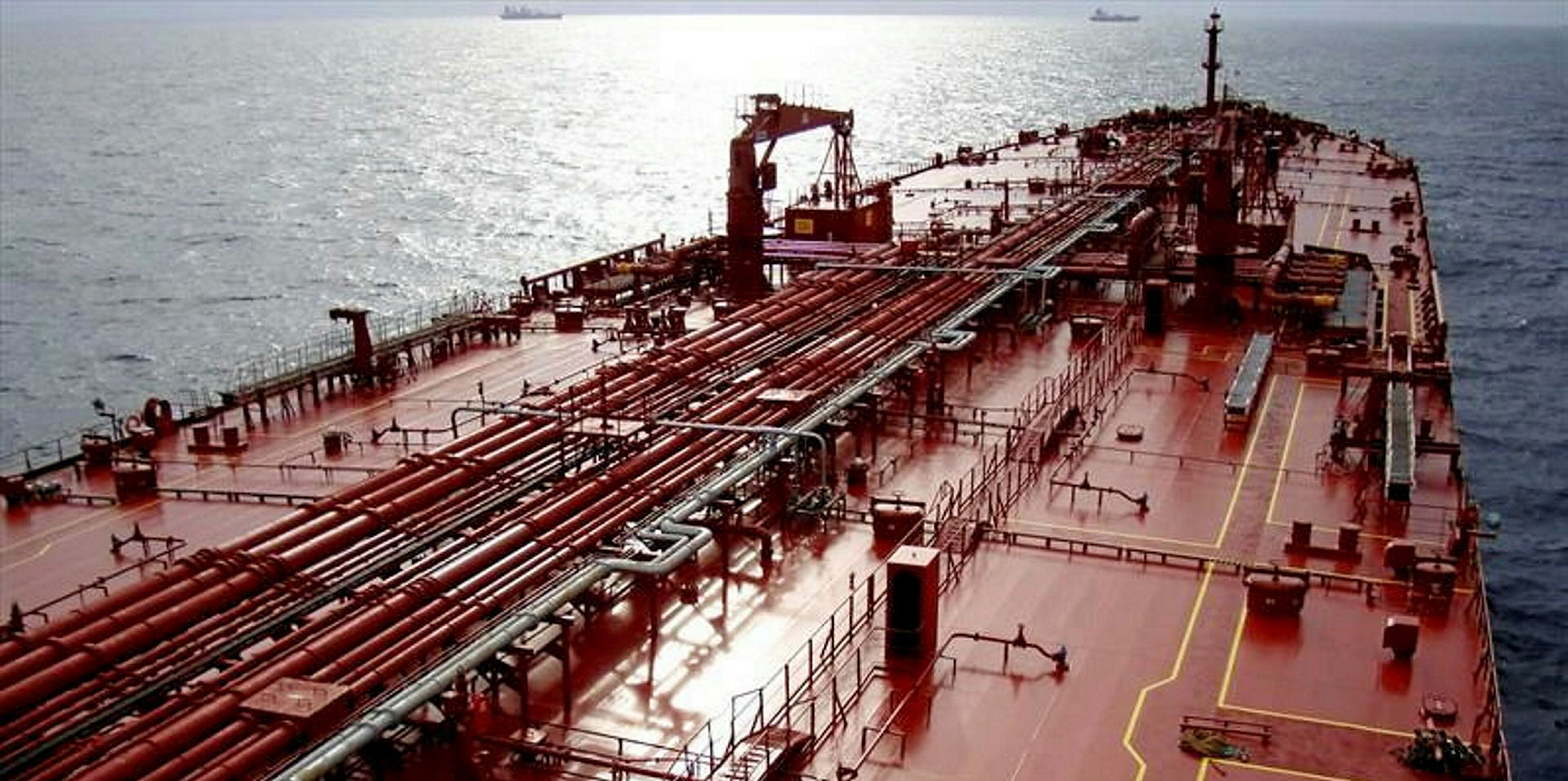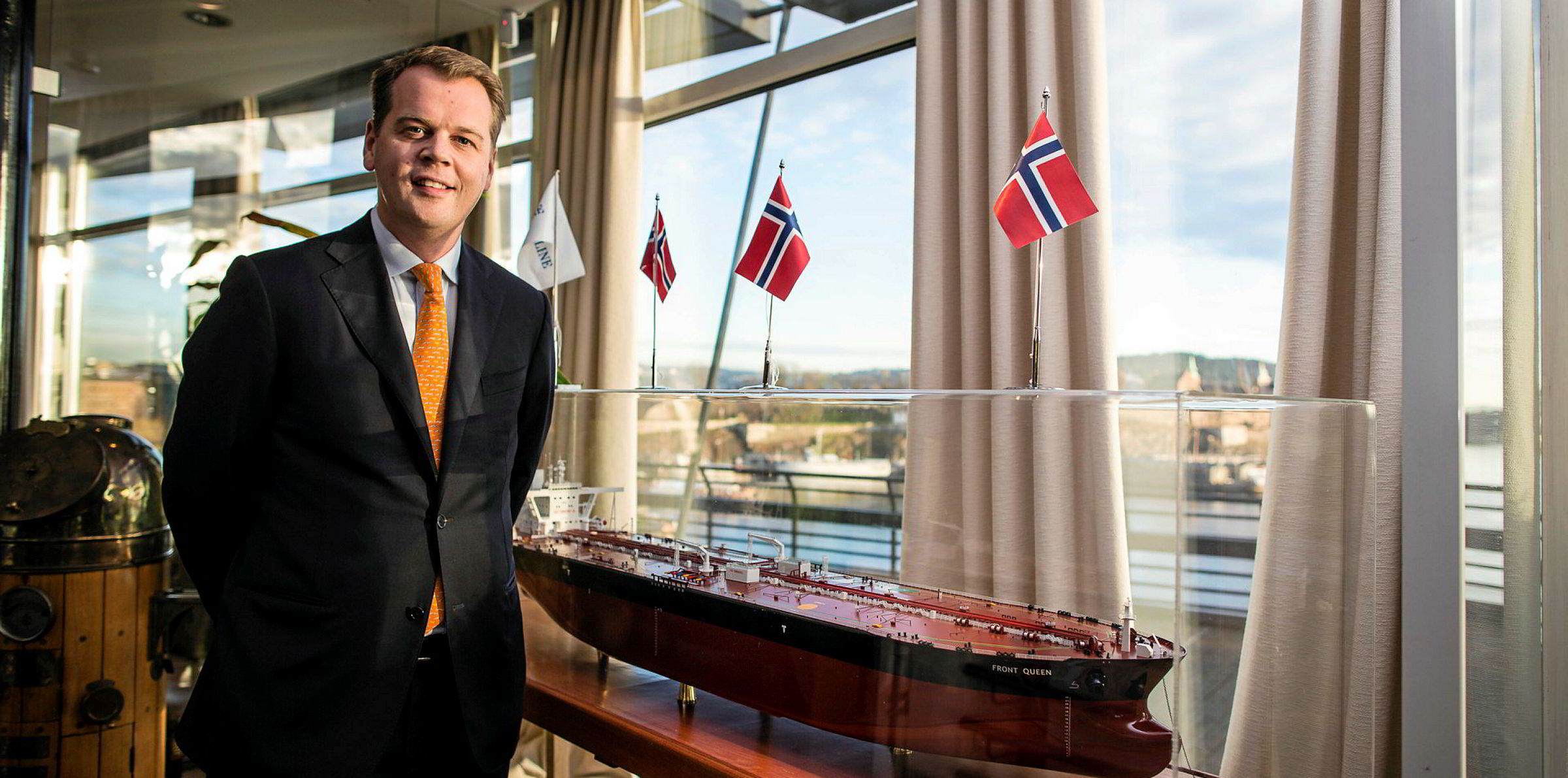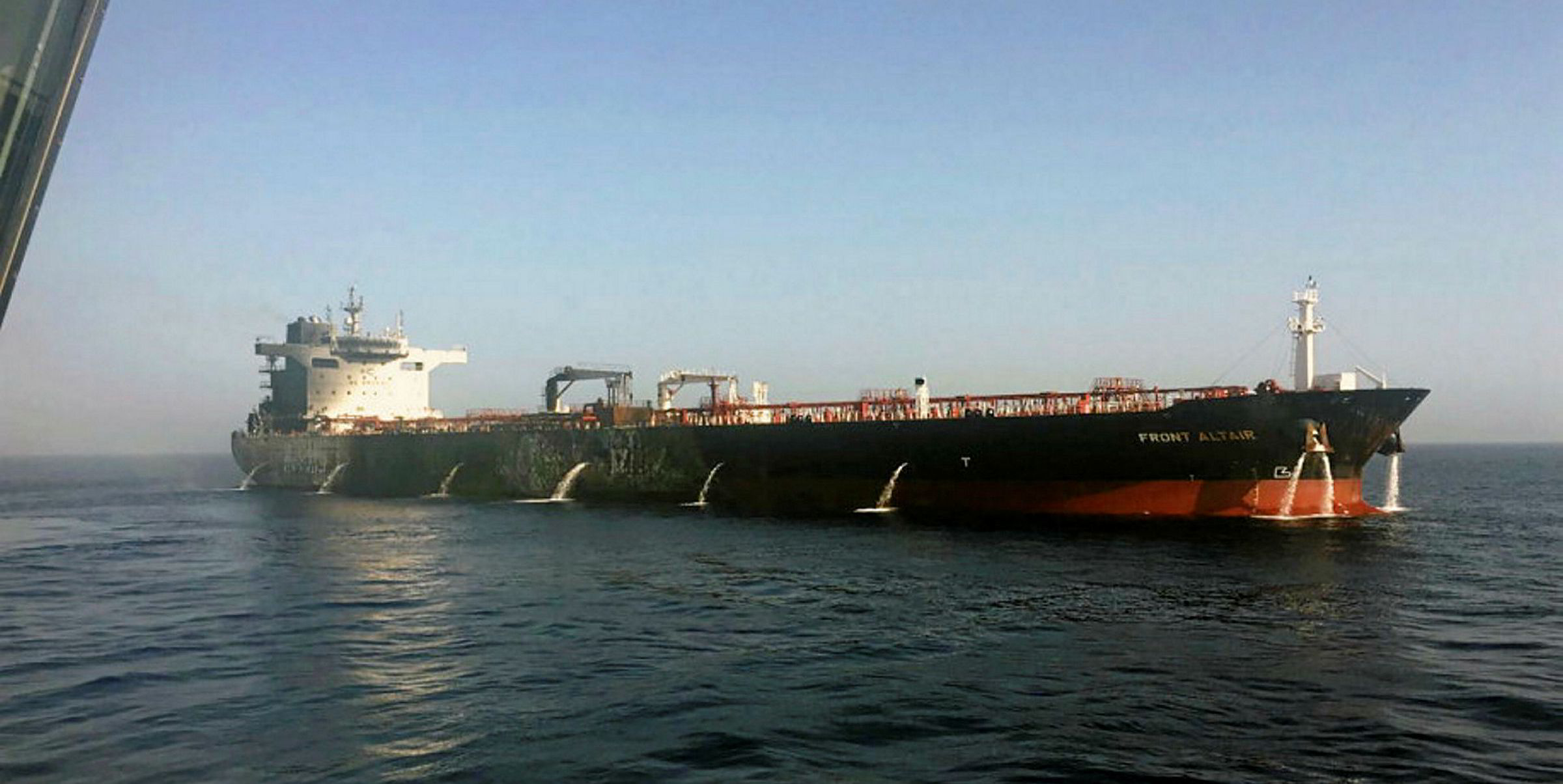Shipowners risk sliding into another Middle East “tanker war” without even knowing for certain who is striking their tonnage.
US President Donald Trump claims Iran is behind merchant vessel attacks in the Middle East Gulf and has just dispatched 1,000 more US troops to the region.
He has promised to ensure that this vital oil highway is kept open, but uncertainty over how tensions will play out has sent the price of chartering crude carriers soaring upwards.
'Maximum pressure'
The only thing stopping oil prices from heading higher is the growing fear that the world is heading into a global recession and thus hinder oil demand.
Any military confrontation between the US and Iran would bring new levels of turbulenceto the wider region, already beset with conflicts in Syria or Yemen.
Some shipowners are already steering clear of the Middle East, while those willing to sail there face higher insurance costs.
Those tanker owners taking advantage of a seller's market are adding a premium to charters for this being dangerous work.
My TradeWinds colleague Max Tingyao Lin has reported that some VLCC hire rates from the region were up by more than 60% this week.
The US president’s threat of “maximum pressure” on Tehran has made it likely that charter costs will escalate more — not less, at least in the short term.
The latest crisis highlights the importance of shipping to global energy trades and the bravery of maritime workers. More than 30% of the world’s crude moves through the Strait of Hormuz, and the late 1980s tanker war led to high rates for those willing to take the risk.
But out-and-out conflict in this vital oil-producing region would also raise global oil prices longer term, pushing customers to reduce shipments and find alternative suppliers or even fuels.
Conflict in the region could have a positive impact on demand from more stable parts of the world, not least the US, and change global tanker movements.
In May, four vessels were attacked off Oman and two more, the Front Altair owned by Frontline and the Kokuka Courageous controlled by Kokuka Sangyo, were hit last week.
No one knows for sure who is to blame, but Trump and his colleagues are convinced it is the Tehran government.
Trump insisted one of the mines used in the latest attacks had “Iran written all over it”, while citing a grainy piece of film footage from the US military showing a small boat alongside the Kokuka Courageous.
Mike Pompeo, the US secretary of state, told television shows at the weekend that the evidence against Iran was “indisputable” and “unmistakable”.
It seems a Washington administration famous for shrugging off its own critics with accusations of 'fake news' has found itself struggling to be believed
Fake news fallout
Yet German Foreign Minister Heiko Maas was among a host of European politicians who said they were still waiting for concrete evidence of Tehran’s involvement before making their own minds up on who was responsible.
And Kokuka Sanyo president Yutaka Katada, whose company controls the Kokuka Courageous, questioned the US idea that a mine had been attached to the vessel, saying its crews described being hit by flying missiles.
It seems a Washington administration famous for shrugging off its own critics with accusations of "fake news" has found itself struggling to be believed.
And this is perhaps unsurprising, given the US has taken every opportunity to undermine the position of Iran since reintroducing sanctions after unravelling the nuclear deal signed between Tehran and the previous Obama administration.
Everyone also remembers that hawkish national security adviser John Bolton argued for the invasion of Iraq in 2003 under the false claims that Saddam Hussein held weapons of mass destruction.
Despite all of this, it is hard to understand who is behind the attacks, including whether or not one Iranian faction or another was involved.
Drumbeat of war
The Iranian government has also upped the tension by saying it could soon start to breach the limits it agreed to set with the US on uranium stockpiles for its nuclear industry.
Washington is reported to be trying to garner European support for some kind of military action in the region, but many countries remain suspicious of Trump and his unpredictable agendas.
International shipping organisations have lined up to call for vessel protection as the world’s energy supply chain is at risk. Frontline chief executive Robert Hvide MacLeod said his tankers have stopped working in the area until added security is in place.
Six vessels hit and the growing drumbeat of military action — it's a turbulent time for tankers.
